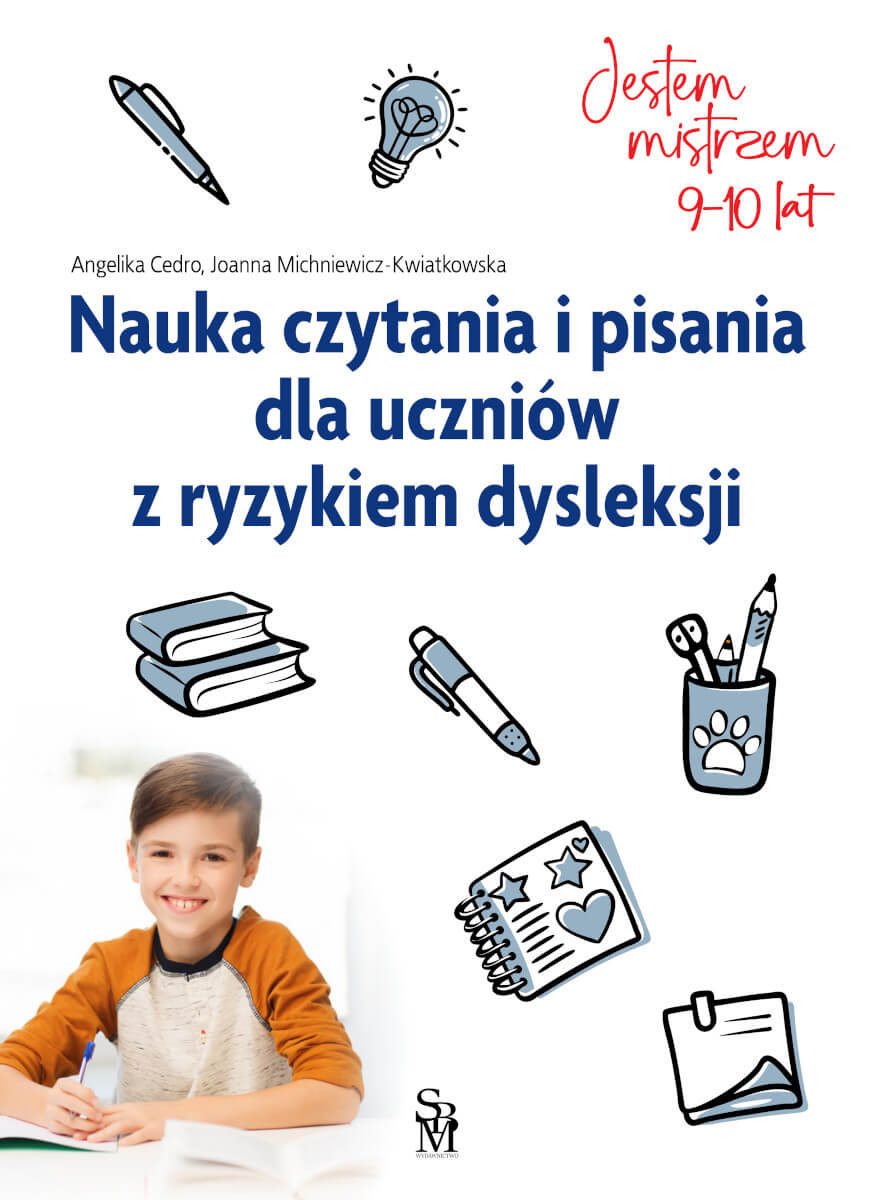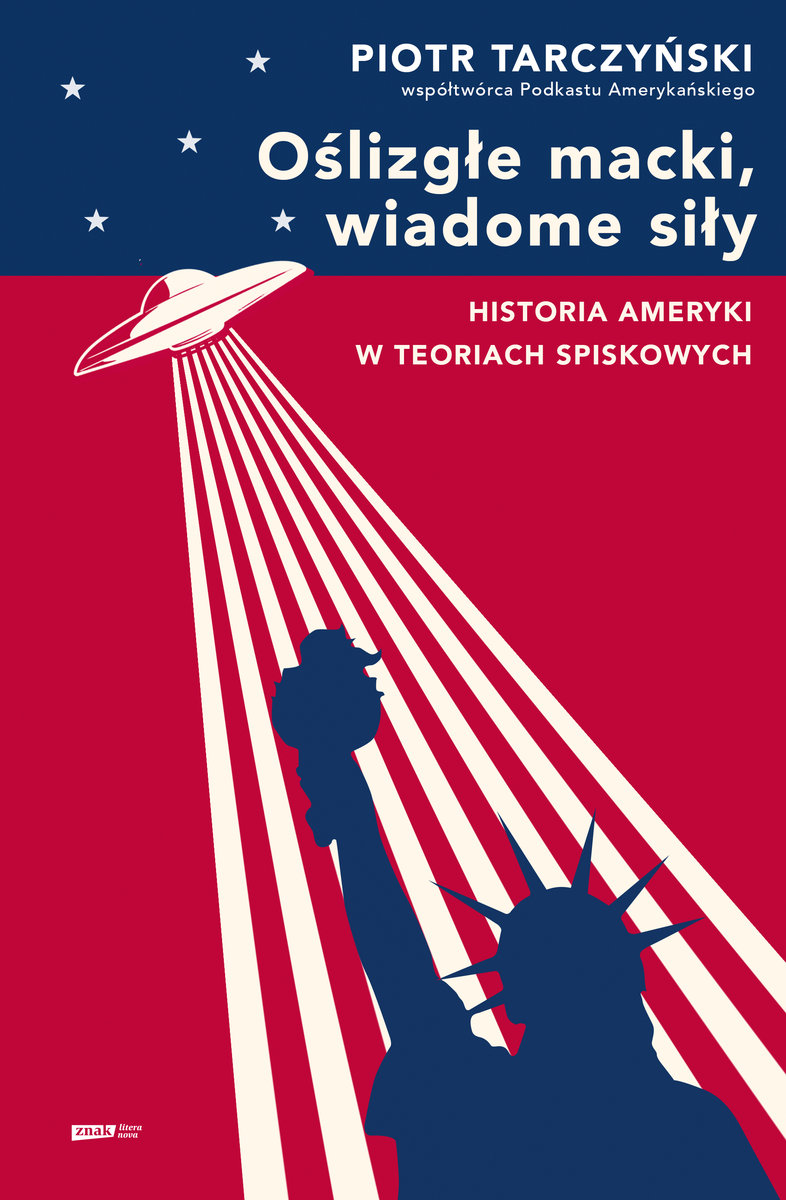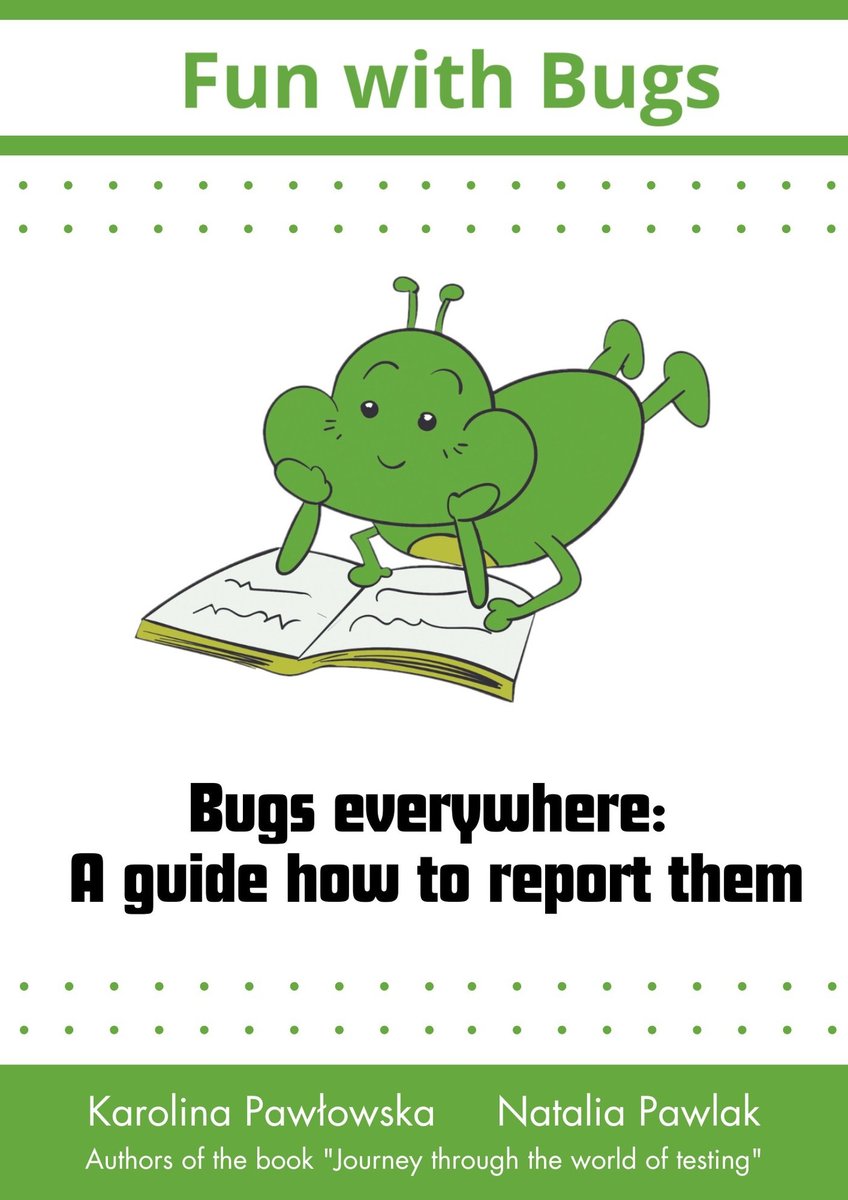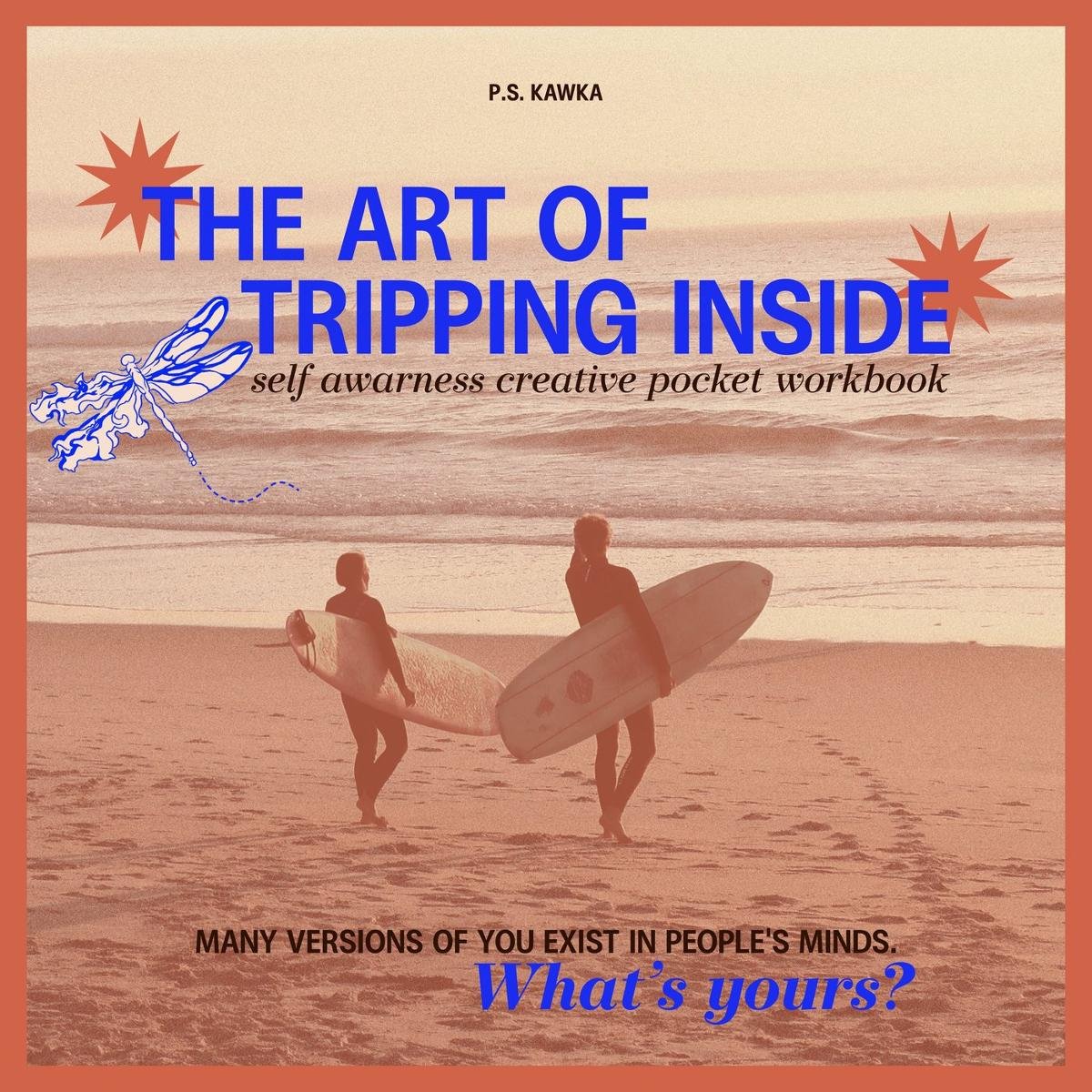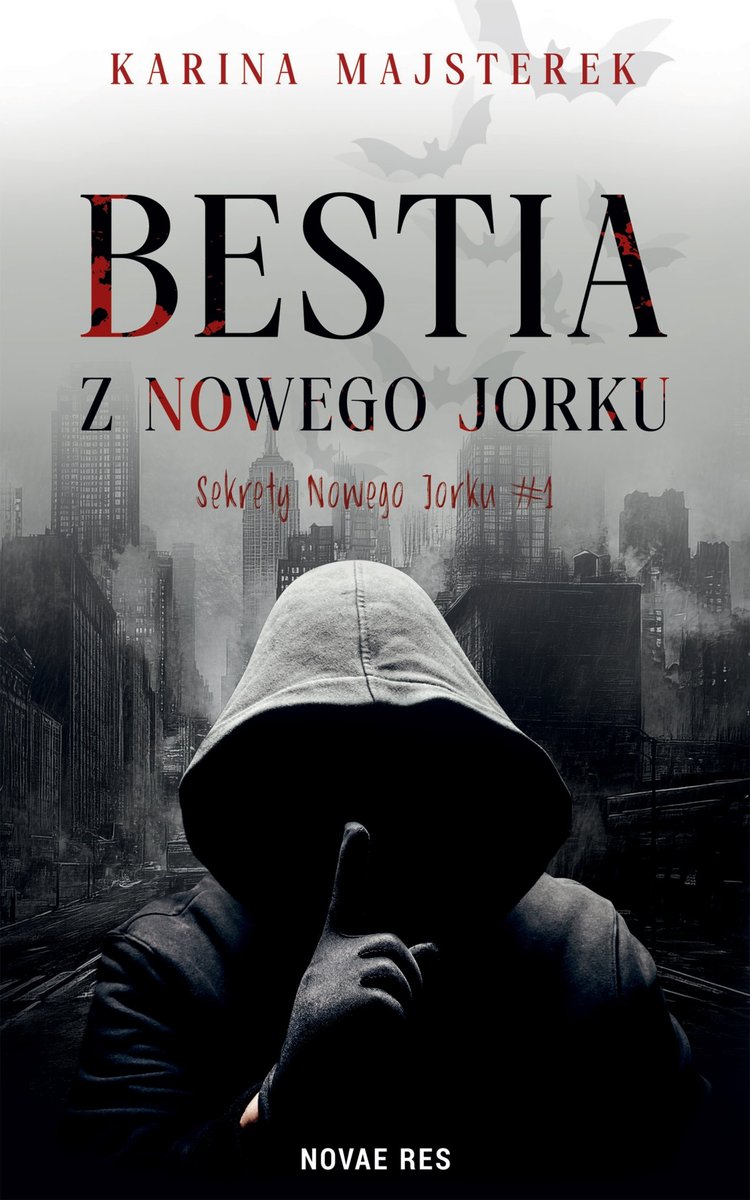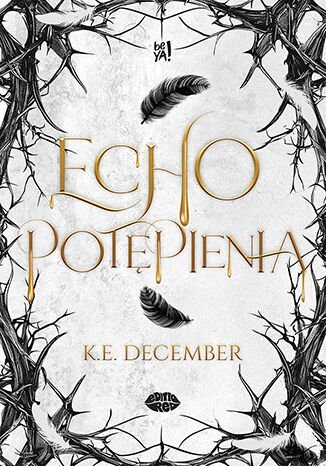1870
| Szczegóły | |
|---|---|
| Tytuł | 1870 |
| Rozszerzenie: | |
1870 PDF - Pobierz:
Pobierz PDF
1870 - podejrzyj 20 pierwszych stron:
John Field
Step by step
Ksi��ka dla pocz�tkuj�cych
z kaset� do samodzielnej
nauki j�zyka angielskiego.
Wydanie polskie kursu
BBC English.
P.W.Z.N.
"Print 6"
Lublin 1995
opracowanie i druk:
P.W.Z.N. "Print 6"
ul. Wieniawska 13
20-071 Lublin
tel. (0-81) 295-18
"Print 6" dzi�kuje
Sekcji BBC English
i Wydawnictwu Tommy
za wsp�prac� i pozwolenie
na przedruk podr�cznika
Redakcja i adaptacja
na podst. podr�cznika
"Step by step" cz. 2:
Beata Kolasa
Redakcja techniczna:
Piotr Kali�ski
Copyright British
Broadcasting Corporation
1993
ISBN 83-85987-60-6
`ns
Unit 27: Is there an bread?
(some) bread: (troch�) chleba
(some) meat: (troch�) mi�sa
(some) fish: (troch�) ryby
(some) cake: (troch�) ciasta
(a) fish: ryba
(a) cake: ciastko
(a) tomato: pomidor
I'm (= I am) hungry: jestem g�odny
cold: zimny
No (coffee): Nie ma (kawy)
(a) piece: kawa�ek
There aren't (= are not): Nie ma
Na pikniku
- Let's sit down here.
- Right.
- I'm hungry. What's in that bag?
- Let me see.
- Is there any bread?
- Yes, there's some bread.
- Meat? Is there any cold meat?
- No, there isn't.
- Are there any tomatoes?
- Er ... yes, there are.
- Eggs? Are there any eggs?
- No, I'm sorry. There aren't.
W kawiarni
- Morning. (Good morning: Czasami m�wimy "morning" zamiast "Good
morning")
- Morning.
- I'd like a cup of coffee, please.
- Coffee?
- Yes.
- Sorry. There isn't any coffee.
- No coffee?
- No.
- OK. Then I'll have some tea.
- Right ... Here you are.
- Um* ... I'd like some milk in my tea, please.
- Sorry, there isn't any milk.
- Well, some sugar, please. (Well: No c�...)
- Sugar?
- Yes, some sugar.
- There isn't any. This isn't the Ritz Hotel, you know. (the Ritz Hotel:
luksusowy hotel w Londynie) (you know: Wiesz)
a fish, some fish:
ryba - a fish,
kawa�ek (porcja) ryby - a piece of fish, some fish,
ciasto - a cake,
kawa�ek (porcja) ciasta - a piece of cake, some cake.
there is, there are:
There is some (meat, fish, milk) in the fridge.
There are some (eggs, tomatoes, bottles) in the fridge.
some, any:
- Is there any (meat? bread? coffee?)
- Yes, there is some (meat. bread. coffee.)
- No, there is not any (meat. bread. coffee.)
- Are there any (eggs? tomatoes? biscuits?)
- Yes, there are some (eggs. tomatoes. biscuits.)
- No, there are not any (eggs. tomatoes. biscuits.)
"some" u�ywamy w zdaniach twierdz�cych.
"any" u�ywamy w zdaniach przecz�cych i pytaniach.
There isn't any
Przeczytaj dialogi:
- Is there any tea?
- No, there isn't any.
- I'd like some tea.
- There isn't any.
Osoba, kt�ra odpowiada nie musi powtarza� wyrazu "tea" (There isn't any
tea), wi�c zdanie skracamy do: There isn't any.
(There is) no coffee
- Znaczy to samo, co: There isn't any coffee
Por�wnaj: There isn't any coffee.
There is no coffe.
27.1 Przeczytaj listy zakup�w. Nast�pnie podziel wyrazy na cztery
grupy.
1. Napoje
2. Produkty piekarnicze
3. Owoce i warzywa
4. Inne
Shopping: fish, bread, apples, coffee, meat, tea, cakes, oranges, eggs,
bananas, tomatoes, milk, water, biscuits.
1. ....
2. bred ...
3. apples ...
4. ...
27.2 Podziel poni�sze wyrazy na dwie grupy.
1. Rzeczy, kt�re mo�na policzy�
2. Rzeczy, kt�rych nie mo�na policzy�
Wstaw "some" lub "a/ an" przed ka�dym s�owem.
1. an apple ...
2. some tea ...
27.3 Podpisz rysunki u�ywaj�c: a, some, cake, fish.
1. ryba ...
2. kawa�ek ryby ...
3. ciasto ...
4. kawa�ek ciasta ...
27.4 Wybierz w�a�ciwe wyra�enie.
1. There is - (There are) some tomatoes in the fridge
2. There is - There are some milk in the fridge.
3. There is - There are some meat in the fridge.
4. There is - There are some biscuits in the packet.
5. There is - There are some cakes on the plate.
6. There is - There are some cake on the plate.
27.5 Zapisz pytania i odpowiedzi dotycz�ce torby, w kt�rej znajduj� si�
artyku�y spo�ywcze: jab�ka, pomidory, butelka wody
1. (Is there any) cold meat (in the bag?)
(No, there is not any cold meat in it.)
2. (Are there any) apples (in the bag?)
(Yes, there are some apples in it.)
3. ... bread...? ...
4. ... tomatoes ...? ...
5. ... water ...? ...
6. ...eggs ...? ...
27.6 Napisz zdania, kt�re znacz� to samo.
1. There is not any water. (There is no water.)
2. There are no apples. (There are not any apples.)
3. There is not any bread. ...
4. There is no sugar. ...
5. There are not any cakes. ...
6. There are no biscuits. ...
27.7 Wybierz w�a�ciwy wyraz.
1. There are: some/ any/ a biscuits, but there are not: some/ any/ a
cakes.
2. There is not: some/ any/ a tea, but there is: some/ any/ a coffee.
3. There is: some/ any/ a fish, but there is not: some/ any/ a meat.
4. There is not: some/ any/ an apple, but there is: some/ any/ an
orange.
5. There are not: some/ any/ a tomatoes, but there are: some/ any/ an
eggs.
27.8 Napisz dialog po angielsku. Jeste� w sklepie spo�ywczym.
- Pytasz, czy jest mleko.
Sprzedawca m�wi, �e nie ma.
- Pytasz, czy s� jajka.
Sprzedawca m�wi, �e nie ma.
- Pytasz, czy jest chleb.
Sprzedawca m�wi, �e s� herbatniki i ciasto, ale nie ma chleba.
Unit 28: Which is their bell?
my: m�j, moja, moje
your: nasz
their: ich
his: jego
her: jej
your: twoje, wasze
Which ones?: Kt�re?
the (green) ones: Te (zielone)
bell: dzwonek
top: (co�) u g�ry
bottom: (co�) na dole
white: bi�y
large: du�y
little: ma�y
W szatni:
Pani prosi o p�aszcz
- My coat, please.
- Certainly. Which one?
- That one. The red one.
- Here you are.
- Thank you.
Dwie panie prosz� o p�aszcze
- Our coats, please.
- Certainly. Which ones?
- Those. The green ones.
- Here you are.
- Thank you.
- Thank you.
Kt�ry dzwonek?
- Excuse me?
- Yes?
- Do Mr and Mrs Brown live here?
- Yes, they do.
- Which is their bell?
- That one. The top one.
- Thank you.
- Excuse me?
- Yes?
- Does Mr White live here?
- Yes, he does.
- Which is his bell?
- That one. The bottom one.
- Thank you.
one, ones:
- Przeczytaj pytanie i odpowiedz:
- Which is your coat?
- The red one.
W j�zyku angielskim u�ywamy "one", �eby nie powtarza� wyrazu "coat".
W liczbie mnogiej u�ywamy "ones":
- Which are your coats?
- The red ones. (= The red coats.)
- Which are your cases?
- The white ones. (= The white cases.)
U�ywamy "one" i "ones" po "Which?" (Kt�ry?):
- My case, please.
- Which one?
- My cases, please.
- Which ones?
"One/ ones" mo�emy te� u�y� w zdaniach typu:
My case is the large brown one.
Our cases are the small green ones.
this one, that one:
- Which is your coat?
- This one. (blisko)
- That one. (dalej)
- Which are your coats?
- These. (blisko)
- Those (dalej)
Czyje to jest?
Wyrazy "my, our, his, her, their" odpowiadaj� na pytanie "Czyj?".
I am John White. I'd like my case, please.
We are Peter and Sue Black. We'd like our case, please.
He is John White. He'd like his case.
She is Anne White. She'd like her case.
They are Peter and Sue Black. They'd like their case.
large, little:
"large" znaczy to samo, co "big".
"little" znaczy to samo, co "small".
Generalnie "big" i "little" s� u�ywane razem I'd like four big ones and
two little ones.
Generalnie "large" i "small" s� u�ywane razem I'd like four large ones
and two small ones.
does, do:
Does Mr Brown live here? Yes, he does.
Do Mr and Mrs Brown live here? Yes, they do.
28.1 Uzupe�nij dialogi. U�yj: "one", "ones" lub zostaw puste miejsce.
1. - My cases, please.
- Which ...?
- The large ...
2. - My coat, please.
- Which ...?
- The blue ...
3. - My key, please.
- Which ...?
- That ...
4. - My keys, please.
- Which ...?
- Those ...
5. - A cake, please.
- Which ...?
- This ...
6. - Some cigarettes, please.
- Which ...?
- These ...
28.2. Wybierz w�a�ciwy wyraz.
1. 3 m�skie koszule: na g�rze bia�a, w �rodku szara, na dole czarna.
2. 3 klucze: na g�rze od pokoju nr 17, na �rodku nr 7, na dole 70.
3. 2 obrazy: na g�rze ma�ych rozmiar�w, pod nim du�y obraz.
1. The bottom shirt is: grey/ white/ black.
The top one is: grey/ white/ black.
2. The top key is number: seventy/ seventeen/ seven.
The bottom one is number: seventy/ seventeen/ seven.
3. The bottom picture is: a small/ large one.
The top one is: a big/ little one.
28.3. Uzupe�nij zdania. U�yj: our, your, their, his, her.
1. Mr Green is in room 3. ... key is number 3.
2. My sister is in room 8. ... key is number 8.
3. We are in room 17. ... key is number 17.
4. The children are in room 2. ... key is number 2.
5. My father is in room 12. ... key is number 12.
6. The Australian women are in room 9. ... key is number 9.
7. You two men are in room 1. ... key is number 1.
28.4 Zapisz zdania u�ywaj�c: grey, white, black, small, large.
Walizka pana David Brown jest ma�a w kolorze czarnym.
Pa�stwo Peter i Jill Brown maj� 2 du�e walizki w kolorze bia�ym.
Walizka pani Anne Brown jest ma�a w kolorze bia�ym.
Pa�stwo Tom i Sue maj� jedn� du�� szar� walizk�.
Walizka pana Johna Brown jest ma�a w kolorze szarym.
1. John Brown is my brother. (His case is small grey one)
2. Anne Brown is my mother. ...
3. Tom and Sue are my children. ...
4. David Brown is my father. ...
5. We are Peter and Jill Brown. ...
28.5 Wybierz w�a�ciwe wyrazy.
- Excuse me? Do Mr and Mrs White leave/ live here?
- Yes, they/ he/ you do.
- Which is her/ their/ his bell?
- That./ That one. / Those. The top one./ ones.
28.6 Zapisz dialog
- Jeste� razem ze znajom�. Popro�cie o p�aszcze.
- Szatniarz nie wie kt�re.
- Wskazujesz na Wasze p�aszcze. Jeden jest czarny, drugi czerwony.
- Szatniarz podaje p�aszcze.
28.7 Urz�dnik chce dowiedzie� si�, kto mieszka w Waszym domu. Zapisz
pytania i odpowiedzi.
- Urz�dnik pyta, czy to Wasz dom.
- M�wisz: Tak, to nasz dom.
- Urz�dnik pyta: jak si� nazywacie.
- M�wisz mu o tym (Mark i Anne Grey).
- Urz�dnik pyta czy Wasze dzieci tu mieszkaj�.
- M�wisz, �e tak.
- Urz�dnik pyta o ich imiona.
- M�wisz mu o tym (John i Sue).
- Urz�dnik pyta czy mieszka tu Tw�j ojciec.
- M�wisz, �e tak.
- Urz�dnik pyta o jego imi�.
- M�wisz mu o tym (Peter).
- Urz�dnik pyta, czy mieszka tu Twoja matka.
- M�wisz, �e tak.
- Urz�dnik pyta o jej imi�.
- M�wisz mu o tym (Pam).
Unit 29: It doesn't go to London. It goes to York.
to (London): do (Londynu)
from (London): z (Londynu)
at: tutaj znaczy na (peronie)
platform: peron
go: jecha�
it goes: jedzie
it doesn't go: nie jedzie
come: przyjecha�
it comes: przyje�d�a
it doesn't come: nie przyje�d�a
come from: przyjecha� z, pochodzi� z
Leeds, York: nazwy miast w Anglii
New Zealand: Nowa Zelandia
Kt�ry poci�g?
- Excuse me?
- Yes?
- Which is the train to London?
- The one at platform 4.
- Excuse me?
- Yes?
- Which is the train from Leeds?
- The one at platform 8.
Czy to poci�g do...?
- Excuse me?
- Yes?
- Does this train go to London?
- Yes, it does.
- Excuse me?
- Yes?
- Does this train go to London?
- No, it doesn't. It goes to York.
W muzeum
- Mm. That's very old.
- Does it come from Japan?
- Er ... let me see ... .
No, it doesn't come from Japan. It comes from China.
Odjazdy poci�g�w
Odjazdy poci�g�w zapowiada si� w nast�puj�cy spos�b:
the eight-thirty train in London (nie "the half past-eight train")
the nine-forty-five train to Leeds (nie "the quarter-to-ten-train")
the twelve-ten train to York (nie "the ten-past-twelve train")
Czasami opuszczamy wyraz "train": the eight thirty to London.
"Zero", to w angielskich zapowiedziach odjazdu litera "o" the six-O-five
train to London (poci�g o 6.05)
go, come:
M�wimy "go" kiedy poci�g odje�d�a:
Does this rain go to London? (Czy ten poci�g jedzie do Londynu?)
M�wimy "come" kiedy poci�g przyje�d�a:
Does this train come from London? (Czy ten poci�g przyjecha� z Londynu?)
Pytania I odpowiedzi na temat pochodzenia:
- Does (this vase, this picture, this fruit) come from (India? Japan?
England?)
- No, it does not come from (India. Japan. England.)
- It comes from (Nigeria. China. New Zealand).
Uwaga: U�ywamy "come" w pytaniach i zdaniach przecz�cych.
U�ywamy "comes" kiedy poci�g przyje�d�a:
W j�zyku m�wionym "does not" skracamy do "doesn't".
Czy ten poci�g jedzie do...?
- Does this train go to London?
- No, it does not go to London. It goes to Leeds.
Uwaga na pisowni� "goes".
Kr�tkie odpowiedzi:
Gdy kto� pyta: "Does this train go to London?", nie odpowiadamy: "Yes,
it goes to London.", tylko m�wimy kr�tko: "Yes, it does" lub "No, it
doesn't."
at:
Por�wnaj: at the station (na terenie dworca) - in the station (wewn�trz
budynku dworcowego)
"at" jest mniej precyzyjne ni� "in". U�ywamy "at" r�wnie� w wyra�eniach
typu:
at platform 3 (na peronie 3)
at the bus stop (na przystanku autobusowym)
29.1 Uzupe�nij zdania:
Departures:
CX 391 Hong Kong
RJ 709 Cairo
WT 268 Lusaka
Arrivals:
TG 492 Bangkok
GF 513 New York
IB 637 Madrit
1. Flight CX 391 (goes to Hong Kong.)
2. Flight IB 637 ...
3. Flight RJ 709 ...
4. Flight GF 513 ...
5. Flight TG 492 ...
6. Flight WT 268 ...
29.2 U�� pytania i odpowiedzi na temat pokazanych samochod�w, kt�re
posiadaj� znaki identyfikacyjne.
AUS - Australia, WAN - Nigeria, GB - Britain, NZ - New Zealand, ET -
Egypt, TR - Turkey, BR - Brazil, PL - Poland.
1. (GB) Does that car come form Britain?
Yes, it does.
2. (BR) Does that car come form Australia?
No, it doesn't. It comes from Brazil.
3. (TR) ...
4. (AUS) ...
5. (NZ) ...
6. (ET) ...
29.3 Zapisz poni�sze wyra�enia tak, jakby by�y to zapowiedzi odjazd�w
poci�g�w.
1. the half-past-nine train. (the nine-thirty train)
2. the ten-to-one train. ...
3. the quarter-to-five train. ...
4. the five-past-two train. ...
5. the twenty-to-seven bus. ...
6. the quarter-past-one bus. ...
29.4 Wybierz w�a�ciwe wyrazy.
1. Does the 8.30 train goes/ go to London?
No, it doesn't goes/ go to London. It go/ goes to York.
2. Does this bus comes/ come from Leeds?
No, it comes/ come from York. It doesn't come/ come from Leeds.
3. Does Flight CX 391 go/ goes to Delhi?
No, it go/ goes to Hong Kong. It doesn't go/ goes to Delhi.
4. Does this vase come/ comes from Japan?
No, it doesn't come/ comes from Japan. It come/ comes from China.
29.5 Uzupe�nij zdania na podstawie rozk�adu jazdy.
Time - To - Platform
8.30 - London - 3
9.15 - York - 5
10.20 - Leeds - 6
1. The train to (London) goes (from) platform 3. It leaves ... 8.30.
2. The ... York ... It ... 9.15.
3. The ... Leeds ... It ... 10.20.
29.6 Napisz dialog po angielsku.
- Pytasz baga�owego, kt�ry poci�g jest tym o 9.30 do York.
- Baga�owy m�wi, �e ten z peronu 7.
- Pytasz, czy poci�g przyje�d�a z Londynu.
- Pytasz, czy zatrzymuje si� w Leeds.
- Baga�owy m�wi, �e tak. Przyje�d�a tam o 11.25, a odje�d�a o 11.30
Unit 30: Do you take sugar?
husband: m��
wife: �ona
go to work: jecha�/ i�� do pracy
by (car): samochodem
ship: okr�t
on foot: pieszo
take sugar: s�odzi� (herbat�)
smoke: pali� papierosy
watch: ogl�da�
programme: program
the news: wiadomo�ci (np. w TV)
football: pi�ka no�na
film: film
TV: telewizja
but: ale
too: tak�e
Jean: imi� �e�skie
David: imi� m�skie
Jazda do pracy
- Does your husband work in London?
- Yes, he does.
- Does he go to work by car?
- No, he doesn't. He goes by train.
- What about you? Do you work? (What about you?: A ty?)
- Yes, I do.
- Do you go to work by car?
- No, I don't. I go by bus.
Herbatka z s�siadk�
David i Jean, kt�rzy s� ma��e�stwem, pij� herbat� z pann� Grey, ich
s�siadk�. Nie znaj� jej zbyt dobrze.
Mrs Grey: Some tea?
Jean: Yes, please.
David: Yes, please.
Mrs Grey: Do you take sugar?
David: I don't take it. But my wife does.
Mrs Grey: How much?
Jean: Two spoons, please.
Mrs Grey: Here you are.
Jean: Thank you.
Mrs Grey: A cigarette? Do you smoke?
David: I smoke, but my wife doesn't ... Thank you.
Ankieta:
Ankieter pr�buje dowiedzie� si� jakie programy telewizyjne podobaj� si�.
- Do you watch our programmes?
- Yes, we do.
- Which programmes do you watch?
- Well, I watch the news.
- And does your husband watch it, too?
- No, he doesn't. He watches football.
- And what about the children? (A dzieci?)
- They watch films.
Komunikacja
Wyrazu "by" u�ywamy m�wi�c o tym, jakim �rodkiem lokomocji je�dzimy: by
bus/ train/ car/ plane/ ship
Zwyczaje:
I - go there by bus.
We - take sugar.
They - smoke. My husband smokes.
My brothers - watch films.
He - goes there by bus.
She - takes sugar.
My wife - watches films.
W trzeciej osobie liczby pojedy�czej dodajemy "s" do czasownika:
My wife take-s sugar. The train leave-s at 8.30.
Uwaga: I go, he/ she goes.
Czasami to "s" wymawiamy jak "z". Na przyk�ad: leaves, arrives, opens,
goes.
Czasami jak "s". Na przyk�ad: takes, smokes.
Niekt�re wyrazy, np."close" czy "watch" ko�cz� si� d�wi�kiem "s", "z",
"sz" lub "cz". Dodajemy wtedy litery "s" lub "es", a wymawiamy jak "iz".
Na przyk�ad: closes, watches.
Pytania o zwyczaje:
Do you (go to work by bus? your husband take sugar? wife smoke?)
Does your (husband, wife) (go to work by bus? your husband take sugar?
wife smoke?)
No, (I, we) do not (go to work by bus. take sugar. smoke.)
No, (he, she) does not (go to work by bus. take sugar. smoke.)
"do not" w j�zyku m�wionym skraca si� na og� do "don't" a "does not" do
"doesn't".
Kr�tkie formy:
- Do you smoke? - Yes, I/ we do.
- No, I/ we don't.
- Does your husband/ wife smoke? - Yes, he/ she does.
- No, he/ she doesn't.
My wife takes sugar, but I don't. (= I don't take sugar.)
I take sugar, but my husband doesn't. (= My husband doesn't take sugar.)
My wife doesn't take sugar, but I do. (= I take sugar.)
I don't take sugar, but my husband does. (= My husband takes sugar.)
30.1 Uzupe�nij zdania na podstawie mapki.
Podr�:
A - statkiem
B - samochodem
C - poci�giem
D - pieszo
E - samolotem
Go to A by ship.
Then ...
Then ...
Then ...
Then ...
30.2 Kiedy m�wimy "he smokes", dodajemy d�wi�k "s" do "smoke".
Kiedy m�wimy "he watches", dodajemy d�wi�k "iz" do "watch".
Kt�re z poni�szych czasownik�w s� takie jak "watch"?
guess, work, arrive, close, open, leave, take.
30.3 Podziel poni�sze wyrazy na dwie grupy wed�ug tego, kt�re z dw�ch
zda� mo�na nimi uzupe�ni�.
1. ... work there. 2. ... works there.
They, She, We, I, Her husband, Those men, He, John, Mrs Black, Mr and
Mrs Black, Three doctors, Peter and Jean.
Zdanie 1
They ...
Zdanie 2
She ...
30.4 Wybierz w�a�ciwy wyraz.
1. I smoke./ smokes.
2. He smoke./ smokes.
3. We drive./ drives.
4. John drive./ drives.
5. She live/ lives her
6. They live/ lives here.
7. It go/ goes at 8.30.
8. We go/ goes by bus.
9. The children watch/ watches football.
1O. My wife watch/ watches films.
30.5 Wybierz w�a�ciwy wyraz.
1. Do/ Does he take sugar?
No, he don't./ doesn't.
2. Do/Does you take sugar?
No, I don't./ doesn't.
3. Do/ Does Sue drive?
No, she don't./ doesn't.
4. Do/ Does you drive?
No, we don't./ doesn't.
5. Do/ Does you smoke?
No, I don't./ doesn't.
6. Do/ Does her husband smoke?
No, he don't./ doesn't.
7. Do/ Does it go to London?
No, it don't./ doesn't.
8. Do/ Does his wife watch football?
No, she don't./ doesn't.
30.6 Uzupe�nij zdania w wywiadzie o tym, kt�re programy telewizyjne
ogl�dane s� przez t� rodzin�. U�yj: do, does, doesn't, watch, watches.
- ... you ... our programmes?
- Yes, we ...
- Which programmes ... your husband ...?
- He ... football.
- And ... you ... it too?
- No, I ... I ... films.
- And what about the children?
- They ... quiz programmes.
30.7 Wybierz w�a�ciwy wyraz.
1. Do/ Does your brother work in London?
Yes, he do./ does. He work/ works in a bank.
2. Do/ Does you live in America?
Yes, we do./ does. We live/ lives in New York.
3. Do/ Does this train go to London?
No, it don't./ doesn't. It go/ goes to Leeds.
4. Do/ Does you go to the cinema?
No, I don't./ doesn't. I watch/ watches TV.
5. My wife doesn't/ don't go by train. She goes/ go by bus.
6. We don't/ doesn't speak Spanish. But we speak/ speaks Chinese.
30.8 Przeczytaj te zdania:
I take sugar. My husband/ wife takes sugar, too.
I don't take sugar. But my husband/ wife does.
I take sugar. But my husband/ wife doesn't.
We don't take sugar.
Teraz napisz podobne zdania o sobie i m�u/ �onie/ znajomym. U�yj:
1. watch TV 2. work 3. go to work by ... 4. drive a car 5. smoke
1. ...
2. ...
3. ...
4. ...
5. ...
Unit 31: Do you have any change.
have: mie�
have the time: wiedzie�, kt�ra godzina
have a light: mie� zapalniczk�
(a) match: zapa�ka
(some) change: drobne pieni�dze
piece: moneta
house: dom
flat: mieszkanie
boy: ch�opiec
girl: dziewczyna
(some) money: (troch�) pieni�dzy
note: banknot
coin: moneta
cent: cent
dollar: dolar
bill: banknot (USA)
per cent: procent
radio: radio
Pro�by
- Excuse me?
- Yes?
- Do you have the time?
- Yes, I do. It's ten to nine.
- Excuse me?
- Yes?
- Do you have a light?
- Yes, I have a box of matches. Here you are.
- Thank you.
- Excuse me ?
- Yes?
- Do you have any change?
- What change do you need?
- I have a fifty-pence piece. I need ten-pence pieces.
- Let me see ... Yes, five ten-pence pieces. Here you are.
- Thanks very much.
Rozmawiamy o rodzinie
Dwoje ludzi spotyka si� na przyj�ciu.
- Are you married?
- Yes, I am.
- Where do you live?
- In London.
- Really? Do you have a house there?
- No, we have a small flat.
- Do you have any children?
- Yes, we have two. A boy and a girl.
Pytania i odpowiedzi z "have"
Do you have (the time? a light? any change?)
Yes, I have (the time. a match. some ten-pence pieces.)
Do you have (a house? a car? any children?)
Yes, (I, we ...) have (a big house. have a small car. we two children.)
No, (I, we ...) don't have (a house. a car. any children.)
Kr�tkie odpowiedzi
- Je�eli kto� nas pyta: "Do you have any change?": nie nale�y
odpowiada�: "Yes, I have some change". Odpowiadamy kr�tko: "Yes, I do"
lub "No, I don't".
change, money
Angielskie wyrazy "change" (drobne) i "money" (pieni�dze) s�
rzeczownikami niepoliczalnymi, tak jak "water", "sugar" czy "milk".
M�wimy wi�c:
I have some money/ some change.
How much money/ change do you have? (nie: How many?)
Nie mo�na te� u�ywa� liczby mnogiej: "moneys" lub "changes".
Monety i banknoty
a (two-pence, five-pence, ten-pence) piece
a (five-pound, ten-pound, twenty-pound) note
Wyrazu "piece" u�ywamy tylko razem z warto�ci� monety. W przeciwnym
wypadku u�ywamy wyrazu "coin": I have a lot of coins.
Uwaga: M�wimy "pound", nie "pounds" gdy podajemy warto�� monety czy
banknotu.
Uwaga: a pound coin.
Dla monety jednofuntowej nie u�ywamy wyrazu "piece".
M�wi�c o innych walutach w brytyjskiej odmianie angielskiego u�ywamy
"piece" i "note"
a (ten-cent, twenty-five-cent) piece
a (dollar, five-dollar, twenty-dollar) note
31.1 Uzupe�nij zdania. U�yj:
time, change, light, any, a, the.
1. Do you have ...? Yes, I have some matches.
2. Do you have ...? Yes, it's five past six.
3. Do you have ...? Yes, I have some ten-pence pieces.
31.2 Opisz banknoty i monety.
1. 10 funt�w (banknot) - a ten-pound note.
2. 100 dolar�w (banknot)
3. 5 funt�w (banknot)
4. 20 dolar�w (banknot)
5. 10 pens�w (moneta)
6. 50 pens�w (moneta)
7. 25 cent�w (moneta)
8. 1 funt (moneta)
31.3 Poni�ej przedstawiono jaki procent rodzin w pewnym kraju posiada
samoch�d, telefon, itd. Napisz zdania u�ywaj�c wyrazu "per cent".
35 % rodzin posiada samoch�d
53 % telewizor
41 % telefon
68 % radio
84 % lod�wk�
1. Thirty-five per cent have a car.
2. ...
3. ...
4. ...
5. ...
6. ...
31.4 Przeczytaj pytania i mo�liwe odpowiedzi:
- Do you have any cold meat?
- Yes, we have some cold meat.
- No, we don't have any cold meat./ No, we have no cold meat.
Napisz pytania, kt�re klient m�g�by zada� sprzedawcy na temat rzeczy na
rysunkach. Nast�pnie zapisz odpowiedzi sprzedawcy.
1. - (chleb) ....?
- ...
2. - (mleko) ...?
- ...
3. - (cukier) ...?
- (nie ma cukru) ...
4. - (pomidory) ...?
- (nie ma pomidor�w) ...
5. - (jajka) ...?
- ...
6. - (kawa) ...?
- (nie ma kawy) ...
31.5 Napisz o sobie i swojej rodzinie wed�ug poni�szych wskaz�wek.
(�onaty/ zam�na?) - I am/ am not married.
(Ile dzieci?) - I/ We ...
(Ch�opcy? Dziewczynki?) - We ...
(Imi�/ Imiona?) - His/ Her/ Their ...
(Dom? Mieszkanie?) - I/ We ... in ...
(Samoch�d?) - I/ We ... The number is ...
(Telefon?) - I/ We ... The number is ...
Unit 32: He has brown hair.
hair: w�osy
eye: oko
hand: d�o�
leg: noga
foot: stopa
arm: r�ka
ear: ucho
dark: ciemne (w�osy)
fair: jasne (w�osy)
long: d�ugi
short: kr�tki
passport: paszport
has: ma
have/ has ... on: nosi� (ubranie)
have got: mie�
I've lost: zgubi�em
called: nazywa si�
We'll look for (them): Poszukamy (ich)
nationality: narodowo��
colour: kolor
Brytyjskie Biuro Imigracyjne
Urz�dnik biura pyta o paszporty
- Do you have a British passport?
- No, I don't. I have an Australian one.
- What about your wife? Does she have a British passport?
- No, she has an Australian one too.
Opisujemy ludzi
W domu towarowym zgubi�y si� dzieci. Mama prosi kierownika o pomoc.
- My children! I've lost my children!
- Where?
- Here is the shop.
- How many children?
- Two - a boy and a girl.
- And how old are they?
- The boy's eleven, and the girl's twelve.
- What are their names?
- The boy's called John, and the girl's called Anne.
- John and Anne. And what are they like?
- Like?
- What colour hair do they have?
- The girl has brown hair.
- And the boy? Does he have brown hair too?
- No, his hair's black.
- What colour eyes?
- They have blue eyes. The girl has glasses.
- And what do they have on?
- Um ...
- Do they have coats on?
- No, they don't. The girl has a yellow dress on.
- Right. And the boy?
- He has a blue shirt on and grey trousers.
- Thank you. Wait here and we'll look for your children.
has, have
(He/ She, Alan) has (a car. two children.)
(They, Alan and Pam, I/ We) have (a car. two children.)
Pytania I odpowiedzi z "has" I "have"
- Does your friend have a British passport?
- Yes, he/ she has a British passport. / Yes, he/ she does.
- No, he/ she does not have a British passport. / No, he/ she doesn't.
- Do your friends have British passports?
- Yes, they have British passports. I Yes, they do.
- No, they do not have British passports./ No, they don't.
"has" i "have" w opisach ludzi
(He, She) has (dark hair. brown eyes. small hands. long hair.)
They have (fair hair. grey eyes. long legs. short hair.)
Wyra�enia "has/ have ... on" u�ywamy m�wi�c, �e kto� ma co� na sobie.
He/ She has a blue jacket on. They have blue jackets on.
short, tall, long
Wyrazu "short" u�ywamy m�wi�c o tym, �e kto� jest niski.
Peter is short.
Wyrazem o przeciwnym znaczeniu jest w�wczas "tall".
Wyrazu "short" u�ywamy r�wnie� m�wi�c o d�ugo�ci i czasie:
It is a short road. Peter has short legs. (nie d�ugie)
The programme is quite short. (nie trwa d�ugo)
W tym przypadku wyrazem o przeciwnym znaczeniu jest "long".
has/ have got
W brytyjskiej odmianie angielskiego, zamiast have u�ywa si� cz�sto "have
got".
I/ We have got a flat.
He has got a flat.
They have not got a flat.
She has not got a flat.
W j�zyku m�wionym "have got" skraca si� cz�sto do 've got (I've got')
"has got" skraca si� cz�sto do: 's got (He's got).
"have not got" zmienia si� w "haven't got", a "has not got" w "hasn't
got".
Pytania z "have got":
Have (you, they) got a flat?
Has (he, she) got a flat?
32.1 Zapisz nazwy cz�ci cia�a. U�yj "left" i "right".
1. (lewa noga) his left leg
2. (prawa stopa)
3. (prawa noga)
4. (prawa r�ka)
5. (w�osy)
6. (lewe oko)
7. (lewe ucho)
8. (lewa d�o�)
32.2 Opisz osoby z rysunk�w. U�yj: short, long, fair, dark, grey, has/
does not have
1. M�czyzna - kr�tkie w�osy. Nosi okulary.
He has short fair hair. He has glasses.
2. Kobieta - d�ugie, ciemne w�osy. Nie nosi okular�w. ...
3. M�czyzna - kr�tkie, szare w�osy. Nosi okulary. ...
4. M�czyzna - kr�tkie, ciemne w�osy. Nie nosi okular�w ...
5. Kobieta - kr�tkie, jasne w�osy. Nosi okulary. ...
32.3 Wybierz w�a�ciwy wyraz.
1. She has/ have brown eyes.
2. I has/ have dark hair.
3. They has/ have coats on.
4. He has/ have big feet.
5. John and Anne has/ have a large house
6. My sister has/ have long hair.
7. Our friends has/ have a flat in London.
8. We has/ have Nigerian passports.
9. The pilots has/ have blue jackets on.
10. His brother has/ have two children.
32.4 Uzupe�nij zdania. U�yj "have" lub "has".
1. Do you ... any change?
Yes, I ... some twenty-pence pieces.
2. Does your wife ... a camera?
Yes, she a Japanese one.
3. Do they ... any children?
Yes, they three.
4. Does he ... a suit on?
Yes, he ... a grey one on.
5. Do your friends ... a phone?
No, they don't one.
6. Does Mark ... grey hair?
No, he doesn't grey hair.
32.5 Wype�nij formularz A informacjami o sobie. Wype�nij formularz B
informacjami o m�u/ �onie/ znajomym.
Form A
Name ...
Nationality ...
Eyes (colour) ...
Hair (colour) ...
Form B
Name ...
Nationality ...
Eyes (colour) ...
Hair (colour) ...
2. Napisz trzy zdania, w kt�rych por�wnasz siebie z osob� opisan� w
formularzu B. Na przyk�ad:
I have brown hair, but ... has black hair.
I have brown hair ... has brown hair too.
....
Unit 33: Hello I'm Pat's father.
grandfather: dziadek
grandmother: babcia
aunt: ciotka
uncle: wujek
son: syn
daughter: c�rka
Have you met ...?: Czy pozna�e� ju� ...?
on fire: pali si�
friend: znajomy, przyjaciel
wedding: �lub
Pat; Rose; Madge;: imiona �e�skie
Tony, Chris: imiona m�skie
Beech; Price: nazwiska
�lub
Panna m�oda nazywa si� Pat, a pan m�ody Tony. Ich krewni spotykaj� si�
po raz pierwszy.
- Hello, I'm Pat's father.
- How do you do?
- You're ...?
- I'm Tony's brother.
- Hello, I'm Pat's mother.
- How do you do? I'm Tony's grandfather.
- And this is Tony's sister.
- How do you do?
Tony: Have you met my aunts? This is Anne.
She's my father's sister.
Anne: How do you do?
Tony: And this is Rose - my mother's sister.
Rose: How do you do?
Tony: And here are my uncles. This is Anne's husband.
Husband: How do you do?
Tony: And this is Rose's husband.
Po�ar
- There's a house on fire!
- What number?
- Number 67.
- That's my friends' house!
's u�ywamy m�wi�c, �e kto� jest w�a�cicielem czego�:
John's car - samoch�d Johna
Anne's coat - p�aszcz Anny
my sister's house - dom mojej siostry
the doctor's bag - torba doktora
's u�ywamy r�wnie� do opisywania pokrewie�stwa:
John's mother - matka Johna
Anne's son - syn Anny
my sister's husband - m�� mojej siostry
the doctor's children - dzieci doktora
Po niekt�rych wyrazach 's wymawia si� jak liter� "s":
Pat's, my aunt's, Mr Park's
Po niekt�rych natomiast jak "z":
John's, Anne's, Tony's, my friend's, my sister's
Nie jest to taka istotna r�nica. Nale�y jednak pami�ta�, �e po
wyrazach ko�cz�cych si� d�wi�kiem "s", "z", "sz", "cz" itd., 's
wymawiamy jak "iz":
Chris's, Rose's, Madge's, Mr Beech's, Mr Price's.
my friend's, my friends'
Por�wnaj zdania:
I have a friend. That is my friend's house.
I have two friends. That is my friends' house.
Wymawia si� je identycznie. R�nice wida� tylko w pisowni:
friend's - co� nale��ce do jednego znajomego
friends' - co� nale��ce do przynajmniej dw�ch znajomych
Por�wnaj: That's my son's bedroom. (jeden syn)
That's my sons' bedroom. (wi�cej ni� jeden, dziel�cy pok�j)
Pat and Tony's wedding
Je�eli wspominamy dwoje ludzi razem, stawiamy "s" po drugiej osobie:
John and Anne's children - dzieci Johna i Anny.
Mr and Mrs Kirk's house - dom pa�stwa Kirk.
my mother and father's wedding - �lub mojej matki i ojca.
Uwaga
Nie nale�y myli� 's z tego rozdzia�u z 's u�ywanym jako skr�t wyrazu
"is". Na przyk�ad:
That's Anne's bag.
Pierwsze 's znaczy "is",a drugie sygnalizuje nam, �e Anne jest
w�a�cicielk� torby.
33.1 W poni�szym drzewie genealogicznym m�czyzny o imieniu Mark,
pierwszy rz�d to dziadkowie; drugi - rodzice, ciotki i wujkowie; trzeci
- pokolenie Marka.
Okre�l ich stopie� pokrewie�stwa.
David - Rose (dziadkowie)
Peter - Pat - John i Helen (dzieci John i Helen to:)
Anne - Mark i �ona Kate - Alan (dzieci Marka i Kate to:)
Chris - Sue.
1. Helen is Mark's mother.
2. Anne ...
3. Peter ...
4. Chris ...
5. Alan ...
6. Sue ...
7. David ...
8. John ...
9. Rose ...
10. Pat ...
33.2 Wybierz w�a�ciwe imiona na podstawie �wiczenia 33.1.
1. Who is Mark's aunt? Rose/ Helen/ Pat/ Sue
2. Who is Sue's grandfather? John/ Mark/ Peter/ David
3. Who is John's daughter? Alan/ Anne/ Sue/ Pat
4. Who is Chris's uncle? Peter/ Alan/ John/ David
5. Who is David's son? Peter/ Pat/ Mark/ Anne
6. Who is Chris's grandmother? Anne/ Pat/ Rose/ Helen
33.3 Napisz zdania o ka�dym z dom�w na podstawie poni�szego planu ulicy
Numery dom�w w kolejno�ci:
15 - 16 - 17 - 18 - 19
-------- ulica ------
Dom numer 15 nale�y do Anna White;
16 do John Brown;
17 do Mr and Mrs Green;
18 do David and Sue;
19 do my uncle.
1. Number seventeen is (Mr and Mrs Green's house.)
2. Number nineteen is ...
3. Number sixteen is ...
4. Number fifteen is ...
5. Number eighteen is ...
33.4 Wybierz w�a�ciwy wyraz.
1. My friends live there. It's my friend's/ friends' flat.
2. I have one son. That is my son's/ sons' bedroom.
3. There are six teachers in the teacher's/ teachers' room.
4. He has two aunts. What are his aunt's/ aunts' names?
5. There is one pilot. That's the pilot's/ pilots' seat.
6. Here's my friend. Those are my friend's/ friends' cases.
33.5 Zapytaj o imiona poni�szych os�b wed�ug przyk�adu.
1. a boy/ two girls
What is the boy's name? What are the girls' names?
2. your friends/ your wife ...
3. two teachers/ a doctor ...
4. a film star/ three singers ...
5. a man/ two women
33.6 W poni�szych zdaniach wybierz te 's, kt�re oznaczaj� w�asno�� lub
pokrewie�stwo, nie pomyl ich z tymi, kt�re oznaczaj� "is".
1. David's in Mr (Kirk's) office.
2. Sue's bag's on that chair.
3. My father's at his sister's house.
4. John's my mother's brother.
5. My wife's a farmer's daughter.
6. Alan's car's behind Mr Price's car
33.7 Zapisz imiona swoich krewnych (tych, kt�rych masz)
�ona - brat/ siostra �ony
m�� - brat/ siostra m�a
ciotka - m�� ciotki
brat - �ona brata
c�rka - m�� c�rki
wujek - �ona wujka
siostra - m�� siostry
syn - �ona syna
2 Zapisz, co by� powiedzia�, gdyby� przedstawia� ka�dego z tych ludzi
komu� obcemu. Na przyk�ad.
This is Anne. She's my uncle's wife.
Unit 34: Monday, Tuesday, Wednesday, Thursday ...
Sunday: niedziela
Monday: poniedzia�ek
Tuesday: wtorek
Wednesday: �roda
Thursday: czwartek
Friday: pi�tek
Saturday: sobota
on: w (jaki� dzie� tygodnia)
Monday afternoon: w poniedzia�ek po po�udniu
Tuesday morning: we wtorek rano
message: wiadomo��
phone: telefonowa�
We need to meet: Musimy si� spotka�
meet: spotka�
then: wtedy
him : jego, z nim, o nim, itd.
her: jej, z ni�, o niej, itd.
them: ich, z nimi, o nich, itd.
me: mnie, ze mn�, o mnie, itd.
us: nas, z nami, o nas, itd.
door: drzwi
window: okno
Czy kto� zostawi� wiadomo��?
Pewien businessman wr�ci� w�a�nie do biura.
- Are there any messages?
- Yes. Please phone Mr Green on Thursday.
- Right. I'll phone him on Thursday. (I'll...: Zgoda. Zrobi� to...)
- Are there any messages?
- Could you please phone Mrs Brown? (Could you...?: Czy m�g�by pan...?)
- Right. I'll phone her on Friday.
- Are there any messages?
- Yes. Could you please phone Mr and Mrs White?
- Right. I'll phone them on Monday.
Umawiamy si� na spotkanie
- We need to meet.
- Yes. When?
- Could you meet me on Monday at three o'clock?
- Right. I'll meet you then. Where?
- At my office?
- Right.
Pro�by I zgoda
Prosimy, �eby kto� co� zrobi�:
Could you (please) - (phone Mr Green? meet me on Monday? close the door?
open the window?)
Zgadzamy si� co� zrobi�:
(Yes.) (Right.) (Certainly.) I'll (phone Mr Green. meet you on Monday.
close the door. open the window.)
Kiedy?
Por�wnaj:
at two o'clock
on Thursday
on Thursday morning
him, her, them, me, us
Przeczytaj zdanie: John phoned Mr Green.
Johna mo�na zast�pi� zaimkiem "he":
He phoned Mr Green
Je�eli chcemy u�y� zaimka w miejsce "Mr Green", musimy u�y� "him":
John phoned him.
Por�wnaj:
I phoned Mrs White. Mrs White phoned me.
We phoned Mr Brown. Mr Brown phoned us.
He phoned Mrs Black. Mrs Black phoned him.
She phoned Mr Green. Mr Green phoned her.
They phoned Mrs Grey. Mrs Grey phoned them.
Zaimek "you" nie zmienia si�.
You phoned Mrs Green. Mrs Green phoned you.
then
Wyraz "then" ma trzy znaczenia:
nast�pnie:
Go to the end of the road. Then turn right.
wtedy:
Three o'clock? Yes, I'll meet you then.
wi�c
There are no buses.
Then go by train.
34.1 Czy domy�lisz si�, kt�re dni tygodnia reprezentowane s� przez
poni�sze skr�ty? Zapisz pe�nymi wyrazami.
1. Mon. ...
2. Fri. ...
3. Sun. ...
4. Sat. ...
5. Wed. ...
6. Tue. ...
7. Thu. ...
34.2 Uzupe�nij nazwami dni tygodnia.
9 Friday
6 ...
5 ...
8 ...
7 ...
10 ...
4 ...
34.3 Uzupe�nij. U�yj "on" lub "at".
1. Meet Mr Green ... Tuesday ... 8.30
2. Please phone Mrs White ... 3.00 ... Monday afternoon.
3. Please phone me ... Friday morning ... half past ten.
34.4 Zapisz zdania.
1. Popro� kogo�, �eby zadzwoni� do Anne.
2. Zg�d� si� zadzwoni� do Mrs White.
3. Zg�d� si� spotka� z Mr Black o godzinie 2.00.
4. Popro� kogo�, �eby zamkn�� okno.
5. Popro� kogo�, �eby spotka� si� z Twoim bratem.
6. Zg�d� si� otworzy� drzwi.
34.5 Po��cz odpowiednie zdania wed�ug przyk�adu.
1. Please phone her. (d)
2. Please phone them.
3. Please phone us.
4. Please phone him.
a) Please phone me and my husband.
b) Please phone Mr Brown.
c) Please phone Mr and Mrs Brown.
d) Please phone Mrs Brown.
34.6 Uzupe�nij zdania. U�yj: him, her, us, them, me.
1. Could you meet ... at three o'clock?
Yes, Anne, I'll meet you.
2. Could you phone John and Anne?
Yes, I'll phone ...
3. Could you meet me and my wife? Could you meet ... at four o'clock?
4. I'll phone Mrs Green. I'll phone ... at eleven o'clock.
5. I'll meet Mr Black on Tuesday. I'll meet ... at nine o'clock.
6. I'll meet Mr and Mrs Brown. I'll meet ... at my office.
34.7 Zostaw wiadomo�� znajomemu prosz�c go/ j�, �eby zrobili
nast�puj�ce rzeczy. U�yj:
Could you please ...? My/ His/ Her phone number is ...
1. Zadzwoni� do Ciebie (numer 456-2900) o godzinie 10.00 we wtorek
wieczorem. ...
2. Spotka� si� z Mr Peck o godzinie 8.00 w �rod� rano. ...
3. Spotka� was o godzinie 4.00 w sobot� po po�udniu. ...
4. Zadzwoni� do Mrs White (numer 761-8422) o godzinie 11.00 w czwartek
rano.
Unit 35: We don't eat much fish. We don't eat many eggs.
Okre�lenia u�ywane z rzeczownikami policzalnymi:
lot of: du�o
many: du�o (w pytaniach)
not many: niewiele
a few: kilka
Okre�lenia u�ywane z rzeczownikami niepoliczalnymi:
a lot of: du�o
much: du�o (w pytaniach)
not much: niewiele
a little: troch�
more: wi�cej
only: tylko
eat: je��
drink: pi�
W supermarkecie
Dwaj sprzedawcy sprawdzaj� ile towaru jest na p�kach.
- Do we need more biscuits? How many do we have?
- Um ... we don't have many biscuits. Only five packets.
- Right. So we need biscuits ... Now, tea?
- We don't have much tea. Only seven packets.
- O.K. ... Tea. How about coffee?
- That's all right. We have a lot of coffee.
- And sugar?
- Let's see. No, we don't have much. We need more sugar.
Co jecie?
Ankieter prowadzi wywiad na temat tego, co pewna rodzina je i pije.
- Tell me, what do you eat? Do you eat much meat?
- Yes, we eat a lot of meat.
- How about fish?
- No, we don't eat much fish.
- Do you eat much bread?
- Yes, we eat a lot.
- And eggs? Do you eat many eggs?
- No, we don't eat many.
- How about tea and coffee? Do you drink much coffee?
- No, we don't drink much.
- And tea?
- Oh yes, we drink a lot of tea.
a lot
"a lot" znaczy "du�o"
Zwrotu tego u�ywamy zar�wno z rzeczownikami policzalnymi, jak i
niepoliczalnymi:
We have a lot of eggs.
We have a lot of milk.
not many, not much, a few, a little
Przeciwie�stwem "a lot" s�:
"not ... many" lub "few".
Tych wyra�e� u�ywamy z rzeczownikami policzalnymi:
We do not have many eggs.
We only have a few eggs.
"not ... much" lub "a little".
Tych wyra�e� u�ywamy z rzeczownikami niepoliczalnymi:
We do not have much milk.
We only have a little milk.
Wyrazu "only" cz�sto u�ywamy z "a few" i z "a little":
We only have a few/ a little.
Pytania z "much" i "many"
Powinni�cie zna� ju� pytania typu:
how many eggs do you eat? (rzeczowniki policzalne)
How much milk do you drink? (rzeczowniki niepoliczalne)
W pytaniach cz�sto u�ywamy "many" i "much" zamiast "a lot":
Do you eat many eggs?
Do you drink much milk?
Podsumowuj�c ...
- Do you eat many eggs?
- Yes, we eat a lot of eggs.
- No, we don't eat many eggs.
No, we only eat a few eggs.
- Do you drink much milk?
- Yes, we drink a lot of milk.
- No, we don't drink much milk.
- No, we only drink a little milk.
Uwaga: Nie musimy powtarza� "eggs" czy "milk" odpowiadaj�c na pytania.
Odpowied� mo�na skr�ci� do:
Yes, we eat a lot.
No, we don't eat many.
No, we only eat a few.
Yes, we drink a lot.
No, we don't drink much.
No, we only drink a little.
35.1 Opisz poni�sze artyku�y. U�yj:
1. (3 jajka) - a few eggs.
2. (ma�o wody w butelce) - ...
3. (pe�ny worek cukru) - ...
4. (12 jajek) - ...
5. (�y�eczka cukru) - ...
6. (pe�na beczka wody) - ...
35.2 Podziel poni�sze wyrazy na dwie grupy zale�nie od tego, czy
u�ywamy z nimi "a few" czy "a little": bread, eggs, sugar, water,
apples, tea, biscuits, meat, butter, tomatoes.
few eggs
a little bread
35.3 Wybierz w�a�ciwe wyrazy.
1. He only has a little/ a few shirts.
2. We only have a little/ a few milk.
3. I only take a little/ a few sugar.
4. We only have a little/ a few oranges.
5. He does not have much/ many shirts.
6. We do not have much/ many milk.
7. I do not take much/ many sugar.
8. We do not have much/ many oranges.
35.4 Uzupe�nij zdania. U�yj: much, many, a lot
1. Do you eat ... biscuits?
- Yes, we eat ...
2. Do you drink ... coffee?
- Yes, I drink ...
3. Do you eat ... meat?
- No, I don't eat ...
4. Do you eat ... eggs?
- No, we don't eat ...
35.5 Wybierz w�a�ciwe wyrazy.
1. We don't have much/ many oranges.
But we have a lot of/ much/ many apples.
2. We drink many/ much/ a lot of tea.
But we don't drink many/ much coffee.
3. We don't have much/ many biscuits.
But we have a lot of/ much/ many bread.
4. We eat a lot of/ much/ many eggs.
But we don't eat much/ many meat.
35.6 Uzupe�nij tabelk� informacjami o tym, co sam jesz i pijesz.
Nast�pnie napisz dialog w oparciu o te informacje. Na przyk�ad:
- Do you eat much fish?
- Yes, I eat a lot.
- No, I don't eat much.
- No, I only eat a little.
a lot - a little/ a few
1. meat
2. eggs
3. coffee
4. tea
5. bread
6. biscuits
1. - ... meat?
- ...
2. - ...?
- ...
3. - ...?
- ...
4. ...?
- ...
5. ...?
- ...
6. - ...?
- ...
Unit 36: A letter to a Japan, a parcel to India.
letter: list
a letter to: list do
parcel: paczka
by air: samolotem
by sea: statkiem
What does it weigh?: Ile to wa�y?
It doesn't weigh much: To nie wa�y du�o
It only weighs a little: To nie wa�y du�o
It weigh a lot: To wa�y du�o
I don't now: Nie wiem
gram: gram
change: reszta
stamp: znaczek
luggage: baga�
too much: za du�o
excess luggage: nadwaga baga�u
How much does ... cost?: Ile ... kosztuje?
It costs ...: To kosztuje ...
Na poczcie
- Morning.
- Morning. How much does a letter to Japan cost?
- To Japan? By air or by sea?
- By air.
- What does it weigh?
- Um, I don't know.
- Let's see ... Twenty-five grams. That's seventy pence.
- Here you are ... a pound.
- Thank you. Thirty pence change.
And here are your stamps.
- Thank you.
Przed odlotem
- Your ticket?
- Here you are.
- Thank you. To Turkey?
- That's right.
- Any luggage? (U�ywane zamiast: Do you have any luggage?)
- Yes. One case.
- Let's see. What does it weigh?
- Oh, it doesn't weigh much.
It only weighs a little.
- A little? It weighs a lot ... thirty-four kilos!
- Um ...
- That's fourteen kilos too much.
- Oh dear! How much does excess luggage cost?
- It costs a lot. It costs ten pounds a kilo. (dziesi�� funt�w za kilo)
Pytania o cen� i wag�
How much does (a letter to Brazil, a parcel to Egypt) cost?
What does (the letter, the parcel) weigh?
It costs (two pounds fifty. sixty pence.)
It weighs (forty grams. four kilos.)
M�wimy o cenach i wadze
Cena:
drogie - It costs a lot.
tanie - It does not cost much.
It only costs a little.
Waga:
ci�kie - It weighs a lot.
lekkie - It does not weigh much.
It only weighs a little.
too much, too many
"Za du�o", to po angielsku "too much" albo "too many".
- What does your luggage weigh?
- Thirty-four kilos.
- That's fourteen kilos too much.
- Here you are - twelve eggs.
- No, that's six eggs too many. I only want six eggs.
36.1 Wybierz w�a�ciwy wyraz
1. This letter weighs/ costs ninety grams.
2. This paper weighs/ costs fifty pence.
3. A ticket to Madrid costs/ weighs a hundred pounds.
4. Your luggage weighs/ costs twenty-five kilos.
5. The apples cost/ weigh eighty pence.
6. The tomatoes weigh/ cost sixty pence.
36.2 Wybierz w�a�ciwy wyraz
1. How much is/ does that picture?
2. How much is/ does a letter to America cost?
3. What is/ does that parcel weigh?
4. How heavy is/ does your luggage?
5. How much is/ does coffee cost in Brazil?
6. How much is/ does a ticket to London?
36.3 Zapisz cen� lub wag�. Nast�pnie u�� zdania typu:
It costs a lot.
It does not cost much. It only costs a little.
1. 25 gram (It weighs twenty-five grams. It does not weigh much. It only
weighs a little.)
2. 547 funt�w
3. 30 kg
4. 1 funt 20 pens�w
36.4 Uzupe�nij dialog. Jeste� na poczcie i chcesz wys�a� krajowy list
lotniczy o wadze 70 gram�w.
- How ... cost?
- By ... or by ...?
- By ...
- How much ... the letter ...?
- It ... ,
- ... one pound seventy-five.
36.5 Uzupe�nij dialog.
Tym razem chcesz wys�a� paczk� do Ameryki poczt� morsk�. Nie znasz wagi
paczki. Masz banknot dziesi�ciofuntowy.
- How ...
- By ... or by ...?
- By ...
- What ... the parcel ...?
- I ...
- Let's see. Two kilos. That's seven pounds eighty.
- Here you are : a ... note.
- Thank you ... change.
Unit 37: What do you do in your spare time?
(a) welcome: powitanie
real (name): prawdziwe (nazwisko)
What do you do ...?: Co robisz..?
in your spare time: w swoim wolnym czasie
a lot: tutaj znaczy: cz�sto
quite a lot: dosy� cz�sto
How interesting: To ciekawe!
like: lubi�
very much: bardzo
read: czyta�
music: muzyka
What kind of ...?: Jaki rodzaj?
pop music: muzyka pop
classical music: muzyka powa�na
how about ...?: a co z ...
sport: sport
tennis: tenis
I quite like: dosy� lubi�
play football: gra� w pi�k� no�n�
play records: odtwarza� p�yty
the cinema: kino
the theatre: teatr
Winston: imi� m�skie
Drake; Smith: nazwiska
Wywiad z gwiazd�
Gwiazdor filmowy, Winston Drake, ma wywiad w telewizji. Prowadz�cy
program chce stworzy� wra�enie, �e zwykle �ycie Winstona jest bardzo
ciekawe.
- And now a big welcome for British film star Winston Drake.
... Winston, welcome to the programme.
- Thank you.
- Winston Drake. Is that your real name?
- Er, no.
- What is your name?
- Er ... John Smith.
- Winston, what do you do in your spare time?
- Well, I ... er ... I watch TV a lot.
- How interesting! What programmes do you like?
- I like films. And I like quiz programmes very much.
- What else do you do, Winston?
- Oh, I ... er ... I read a lot.
- Do you? How interesting! What books do you read?
- Oh, I don't read books much.
- What do you read, then?
- I read the paper.
- Do you like music, Winston?
- Yes, I do.
- What kind of music? Do you like pop music?
- Yes, I do.
- And how about classical music?
- No, I don't like classical music much.
- Which sports do you like? Tennis?
- I quite like tennis.
- How about football?
- Yes, I like football very much.
- How interesting! So you play football a lot?
- Er ... no, I don't play it. I watch it.
Jak cz�sto?
Do you (read, play tennis, watch TV) much?
Cz�sto:
Yes, I (read, play tennis, watch TV) a lot.
Dosy� cz�sto:
I (read, play tennis, watch TV) quite a lot.
Niezbyt cz�sto:
No, I do not (read, play tennis, watch TV) much.
To lubi�
I like (the cinema, football, classical music) (very much. a lot.)
"Bardzo to lubi�"
I quite like (the cinema, football, classical music) "Dosy� to lubi�"
I do not like (the cinema, football, classical music) much. "Niezbyt to
lubi�"
gra
"play" u�ywamy m�wi�c o grach:
I play tennis a lot. I play football a lot.
Uwaga: Przed nazwami gier lub sport�w nie stawiamy "a" ani "the".
"play" u�ywamy te� m�wi�c o muzyce:
I play record a lot.
The cinema, the theatre
"Kino" w sensie "miejsca, gdzie ogl�damy filmy", to "a cinema". "Teatr"
w tym samym znaczeniu, to "a theatre". M�wi�c o kinie lub teatrze w
sensie dziedziny sztuki, u�ywamy "the":
I like the cinema. (Lubi� kino, ogl�danie film�w)
I like the theatre. (Lubi� teatr, ogl�danie sztuk)
37.1 Po��cz wyrazy (a-j) ze zd

